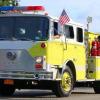Sign in to follow this
Followers
0

Firefighter Hazards - Residential Solar Panels
Started by
RWC130,
-
Recently Browsing 0 members
No registered users viewing this page.

Started by
RWC130,
No registered users viewing this page.